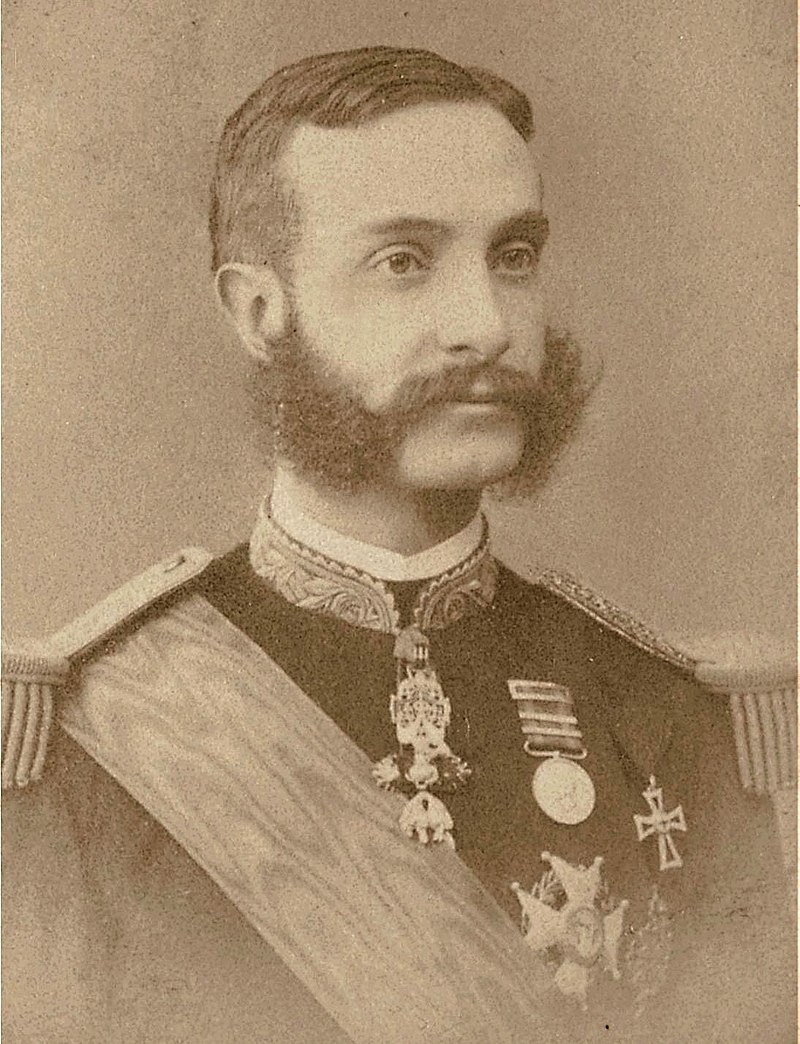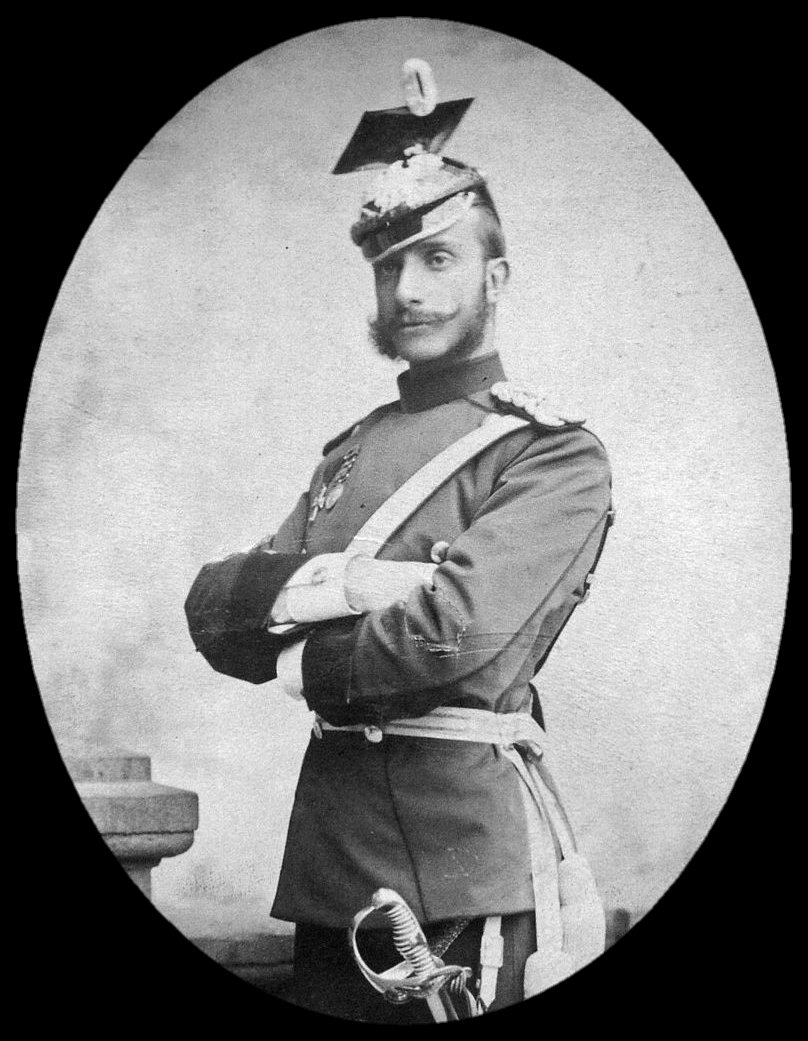|
Spanish-Philippines
Reign
of King Alfonso XII
1875 -
1889
Nigel Gooding Collection

King
Alfonso XII of Spain
Reign Between December 29, 1874 to November 25, 1885
 Alfonso XII, also known as El Pacificador (the Peacemaker), was born at the Royal
Palace in Madrid, Spain on November 28, 1857. The eldest surviving son of
Queen Isabella II and, presumably, her consort, the duque
de Cadiz, Alfonso accompanied his mother into exile following her deposition
by the revolution of September 1868. He received his education at the Theresianum in Vienna and at the Royal Military College,
Sandhurst, England. On June 25, 1870, Alfonso was recalled to Paris, where
his mother abdicated in his favour, in the presence of a number of Spanish
nobles who had tried their fortunes to those of the exiled queen. It was not
until four years later, on December 29, 1874, that Alfonso was proclaimed
king of Spain. He returned to his country early in January of the following
year. Alfonso XII, also known as El Pacificador (the Peacemaker), was born at the Royal
Palace in Madrid, Spain on November 28, 1857. The eldest surviving son of
Queen Isabella II and, presumably, her consort, the duque
de Cadiz, Alfonso accompanied his mother into exile following her deposition
by the revolution of September 1868. He received his education at the Theresianum in Vienna and at the Royal Military College,
Sandhurst, England. On June 25, 1870, Alfonso was recalled to Paris, where
his mother abdicated in his favour, in the presence of a number of Spanish
nobles who had tried their fortunes to those of the exiled queen. It was not
until four years later, on December 29, 1874, that Alfonso was proclaimed
king of Spain. He returned to his country early in January of the following
year.
 For most of Alfonso’s reign
Spain enjoyed an unaccustomed tranquillity. The pattern of political life was
determined by Antonio Canovas del Castillo,
Alfonso’s prime minister from 1875 to 1881 and again from 1884 to 1885. The
two most urgent problems, ending the civil war unleashed by the Carlists, the partisans of the successors to the Spanish throne in the
male line, and drafting the constitution, were both settled in 1876. In
addition, the Convention of Zanjon established
peace in Cuba after the Ten Years’ War. In January 1878 Alfonso married Maria
de las Mercedes, daughter of the duc de Montpensier, but sadly died six months later. The
following year the king married a daughter of the archduke Charles Ferdinand
of Austria, Maria Cristina, by whom he had two daughters and a son, who became
Alfonso XIII. For most of Alfonso’s reign
Spain enjoyed an unaccustomed tranquillity. The pattern of political life was
determined by Antonio Canovas del Castillo,
Alfonso’s prime minister from 1875 to 1881 and again from 1884 to 1885. The
two most urgent problems, ending the civil war unleashed by the Carlists, the partisans of the successors to the Spanish throne in the
male line, and drafting the constitution, were both settled in 1876. In
addition, the Convention of Zanjon established
peace in Cuba after the Ten Years’ War. In January 1878 Alfonso married Maria
de las Mercedes, daughter of the duc de Montpensier, but sadly died six months later. The
following year the king married a daughter of the archduke Charles Ferdinand
of Austria, Maria Cristina, by whom he had two daughters and a son, who became
Alfonso XIII.
Although politically inexperienced, Alfonso XII
demonstrated great natural tact and sound judgment, qualities that gave rise
to hope that the monarchy would not suffer if the constitution enacted in
1876 were fully implemented. Attempts on the king’s life (October 1878 and
December 1879) and a military pronunciamiento
against the regime (1883) were not indicative of any general discontent with
the restored monarchy. On the contrary, Alfonso enjoyed considerable
popularity, and his early death on November 25, 1885 from tuberculosis was a
great disappointment to those who looked forward to a constitutional monarchy
in Spain.
|